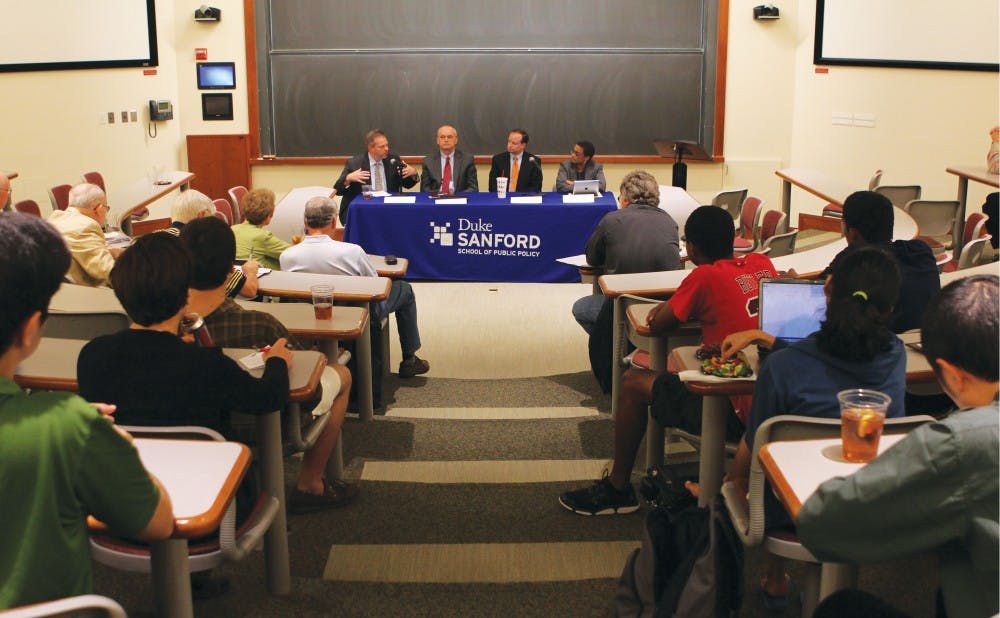Political experts came together Monday evening to reflect on the tumultuous state of politics in North Carolina over the last year.
The summer saw plenty of state legislative action on voter rights, health care and education, and the results rankled many state constituents, the panelists said. Don Taylor, associate professor of public policy, moderated the panel of three state political experts—Chris Fitzsimon, founder and executive director of North Carolina Policy Watch; reporter Lynn Bonner of The News and Observer; and John Hood, president and chairman of the John Locke Foundation think tank.
In his introduction, Taylor noted that the state has been in the nation’s political spotlight as a result of controversial legislation that has led to activism.
“North Carolina was ridiculed because the House legislation decided it doesn’t have to follow what the Supreme Court does,” Fitzsimon said.
The panelists discussed voter IDs, which since the 2012 elections have become one of the most controversial topics in North Carolina politics. The bill requires students to use state-issued and not university-issued identification in order to vote, among other restrictions.
The panelists then turned to health care and education, two of the areas that have garnered much national attention. The North Carolina General Assembly voted to decline federal funds to expand state Medicaid coverage to low-income residents.
Although Obamacare has faults, Bonner said, it attempts to cover the health care of all people under the poverty threshold and improves the welfare of many more than the House’s position.
The refusal to take greater legislative responsibility for health care coverage increases pressure on nonprofit health care organizations, such as Community Care North Carolina, to provide for the state’s poor, Taylor said.
Increased access to health care tends to decrease reliance on the emergency room, which in turn reduces hospital costs for the treatment of the uninsured. This is important given that the United States has one of the highest health care expenditures per capita in the world, Taylor said.
The panel also addressed legislation on abortion. Ftizsimon emphasized that at one point, the Republican majority’s version of a compromise on abortion was mandating that those pursuing an abortion see an ultrasound before the procedure and receive approval from an anti-abortion advocate. As debate over the law intensified, the state legislators changed their position to not allow any coverage of abortion under government health insurance plans.
The end of the panel covered the state’s stance on education. In response to economic pressure, the North Carolina House considered significant cutbacks to the community college system, which Hood called one of the best in the nation.
“Universities are an economic engine,” Bonner said. “They attract many people to move here.”
Ultimately the budget allocated more money to universities—including private institutions—than the national average, but less than the national average on the K-12 school system. With these fiscal decisions, Fitzsimon said that it has become harder for students in North Carolina to receive a strong education at the elementary level. As a result, North Carolina test scores have fallen below the national average, he added.
With the state’s political history over the past year, the panelists were not optimistic for the upcoming legislative year.
“There’s going to be a lot of disagreement until the left and the right don’t come together,” Hood said.
Get The Chronicle straight to your inbox
Signup for our weekly newsletter. Cancel at any time.

